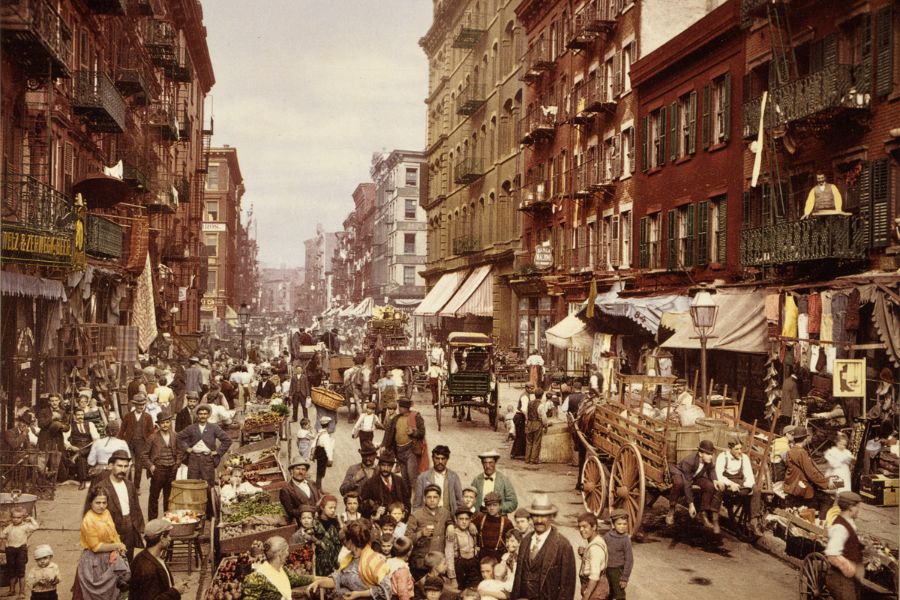Names carry a lot of meaning and, as time passes, the popularity of certain names ebbs and flows like fashion trends.
What might have been a popular name a hundred years ago could feel old-fashioned today, while names that once seemed unusual might now be common in classrooms and workplaces.
We’ll explore how names have evolved over time, what influences these shifts in popularity, and why certain names seem to come back into style after decades of being out of favor.
The Rise and Fall of Popular Names

Names don’t stay popular forever. Like clothing or hairstyles, certain names go in and out of style as cultural influences change.
For example, in the early 1900s, names like “Mildred,” “Dorothy,” “Clarence,” and “Edgar” were at the top of the charts.
Today, you’re far more likely to meet a child named “Liam” or “Olivia” than a “Mildred” or “Clarence.”
So, what causes these shifts? A few factors often influence the popularity of names, such as:
Cultural Influences
Pop culture has a huge impact on naming trends.
A name might become popular because of a famous celebrity, athlete, or character in a movie or TV show.
The name “Arya” soared in popularity after the character from Game of Thrones captured viewers’ hearts.
Historical Events
Major historical events can also shape naming trends.
During World War II, names like “Patricia” and “Robert” were extremely popular.
In more recent years, names that symbolize strength, hope, or uniqueness have become trendy, as people seek inspiration from global movements or challenges.
Generational Cycles
Interestingly, names tend to run in cycles.
You’ll often find that names fall out of favor for a few decades before making a comeback.
This means that while a name like “Evelyn” might have seemed old-fashioned a generation ago, it’s now seen as a charming, vintage name and has made its way back into baby name lists.
Names from the Past: The 1900s vs. Today

If we take a trip back to the early 20th century, the names you would hear most frequently were quite different from those you’d encounter today.
In 1920, names like “Mary,” “Helen,” “John,” and “William” were at the top of the baby name lists. These names were timeless, simple, and traditional.
Fast forward to today, and names like “Aiden,” “Sophia,” “Jackson,” and “Mia” dominate the charts. These names are more modern, often chosen for their unique sounds or because they feel trendy. Some of them didn’t even exist a hundred years ago.
Interestingly, many names from the early 1900s are starting to come back in style.
Vintage names like “Hazel,” “Charlotte,” “Henry,” and “Arthur” are being chosen by modern parents who want to give their children names that feel classic but not too common.
Influences on Modern Naming Trends

There are many reasons why certain names become popular in modern times, and it’s not always predictable!
Here are some key factors that influence today’s naming trends:
Pop Culture and Media
As we mentioned earlier, pop culture is a huge influence on modern naming.
TV shows, movies, and music stars can make certain names skyrocket in popularity.
After the release of Disney’s Frozen, the name “Elsa” became wildly popular.
Social Media and the Internet
In the age of social media, parents are more connected than ever.
This means they’re more likely to encounter and be influenced by a wide range of names from around the world.
Websites, baby name blogs, name generators, and forums allow parents to research and discuss names, which can lead to new trends or bring old ones back to life.
Unique and Uncommon Names
Today’s parents often want their child to stand out, so they might choose names that are less common or even make up their own names.
This has led to the rise of unique spellings, as well as names that blend different cultures or languages.
For example, names like “Zayden” or “Aaliyah” have become more popular, even though they weren’t commonly used a few decades ago.
Gender-Neutral Names
Another major trend in modern naming is the rise of gender-neutral names.
Names like “Jordan,” “Taylor,” and “Alex” have become popular choices for both boys and girls.
Parents today are more likely to choose names that don’t fit into traditional gender roles, allowing their children more freedom to define themselves as they grow up.
How Naming Trends Evolve Globally

Naming trends aren’t just limited to one country or culture.
In fact, names are constantly evolving all over the world, often influenced by globalization and cultural exchange.
Many names that were once specific to certain countries or cultures are now becoming popular across the globe.
Names like “Liam,” “Isabella,” and “Noah” are popular in both the United States and Europe.
This global blending of names is partly due to the increased exposure to different cultures through travel, social media, and international entertainment.
However, some countries and cultures still have very distinct naming traditions that influence trends.
In countries like Japan and China, names are often chosen based on their meanings, with parents selecting characters that represent virtues or values they want their child to embody.
These cultural naming traditions can create trends that are unique to specific regions.
Conclusion
Naming trends are constantly evolving, shaped by cultural influences, historical events, and the desire for uniqueness.
Whether you’re drawn to vintage names that harken back to a bygone era, or you prefer modern, trendy names that feel fresh and exciting, the choice of a name reflects the time we live in and the influences around us.
Looking at naming trends over time shows us just how much names are tied to the world around us.
From classic names that have stood the test of time to new, inventive names influenced by pop culture and global exchanges, names will always carry special significance and tell a story about the world in which we live.
Whether you’re choosing a name for a child or just curious about naming patterns, it’s fascinating to see how these trends shift—and how names reflect who we are as individuals and as a society.
Leave a Reply